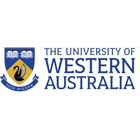Master of Biomedical Science
Master of Biomedical Science
Biomedical Science encompasses a range of biological, medical and health-related disciplines addressing global biomedical challenges such as obesity, cancer, neurological diseases and cardiovascular disease. Biomedical Science draws on the disciplines of anatomy, physiology, biochemistry and neuroscience and the para-clinical disciplines of microbiology, pathology and pharmacology to understand and treat human…
Categories
COURSE DESCRIPTION
Biomedical Science encompasses a range of biological, medical and health-related disciplines addressing global biomedical challenges such as obesity, cancer, neurological diseases and cardiovascular disease. Biomedical Science draws on the disciplines of anatomy, physiology, biochemistry and neuroscience and the para-clinical disciplines of microbiology, pathology and pharmacology to understand and treat human disease.
This course emphasises on cutting-edge research and its translation to healthy living and to clinical diagnosis and treatment of disease. You are able to focus on advancing your knowledge through coursework or research. Biomedical Science has increasingly embraced the overarching disciplines of human genetics, epigenetics and genomics to understand how gene-environment interactions define the human phenotype in its normal and diseased states. The program places strong emphasis on developing research literacy.
Course structure
Postgraduate coursework degrees and combined (coursework and research) degrees comprise a number of units.
Why study biomedical science?
If you’re fascinated by medical science and scientific experimentation, completing a Master’s of Biomedical Science will give you the knowledge and laboratory skills you’ll need to pursue a rewarding career where you can make new medical discoveries in human diseases.
Work with internationally-recognised Biomedical scientists
Career Pathways
Graduates will be well positioned to pursue careers in international research laboratories, government agencies as well as the private sector. The course may provide graduates with a pathway to a PhD (an alternative to the conventional Honours pathway) depending on their unit selection. Graduates may also progress to professional degrees including medicine, dentistry and pharmacy.
Further Study
Students completing this degree may have the option to pursue further studies in research.
REQUIREMENTS
To be considered for admission to this course an applicant must have—(a) a Bachelor’s degree, or an equivalent qualification, as recognised by UWA; and(b) the equivalent of a UWA weighted average mark of at least 50 per cent; and(c) successfully completed prior tertiary study in—(i) biochemistry and molecular biology for the Biochemistry and Molecular Biology or Food Biochemistry specialisations; or(ii) biological, medical, or biomedical sciences for the Neuroscience specialisation; or(iii) a related cognate discipline as recognised by UWA.
English language requirements:
TOEFL (paper-based): 570 with a Test of Written English (TWE) of no less than 4.5
IBT TOEFL (Internet-based test score): 82 with 22 for writing, 20 for speaking, 20 for listening, and 18 for reading
IELTS (Academic): 6.5 (no band lower than 6.0)
Cambridge Certificate of Proficiency in English: C pass
Cambridge Certificate in Advanced English: B grade
Pearson Test of English (PTE) (Academic): Overall score of 64 with a minimum score of 64 in the Reading and Writing sections, 59 in the Speaking section and 54 in the Listening section
EDUCATIONAL INSTITUTION
The University of Western Australia (UWA) is a proud member of the Group of Eight and is the only university in Western Australia to be ranked in the world top 100 universities (QS World University Rankings 2023).UWA’s main campus is located in Perth, Western Australia and is home to more than 23,000 students. Perth is Australia’s fourth-largest city with over two million people from a variety of cultures worldwide, a strong economy and vibrant lifestyle. Perth is one of the country’s most affordable cities, the closest major Australian city to Asia, and in the same time zone as most of Asia.




